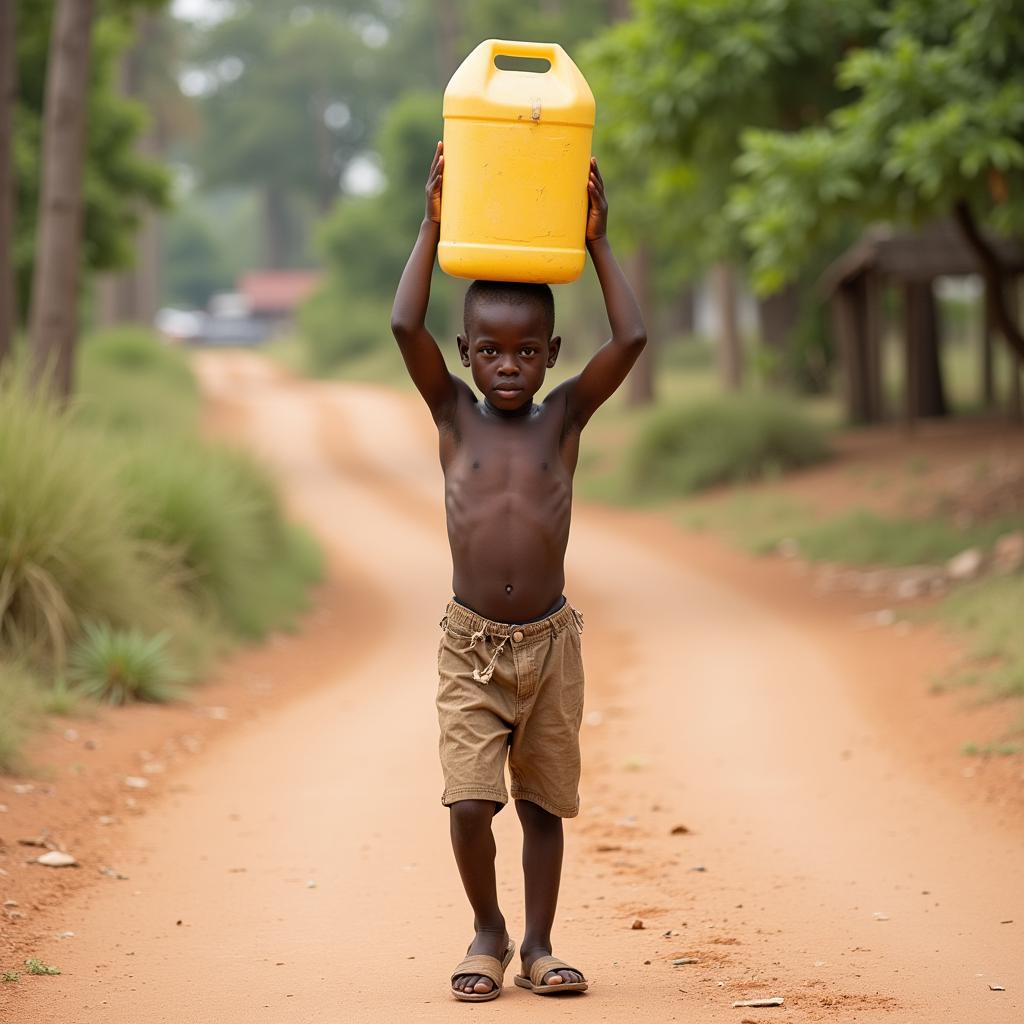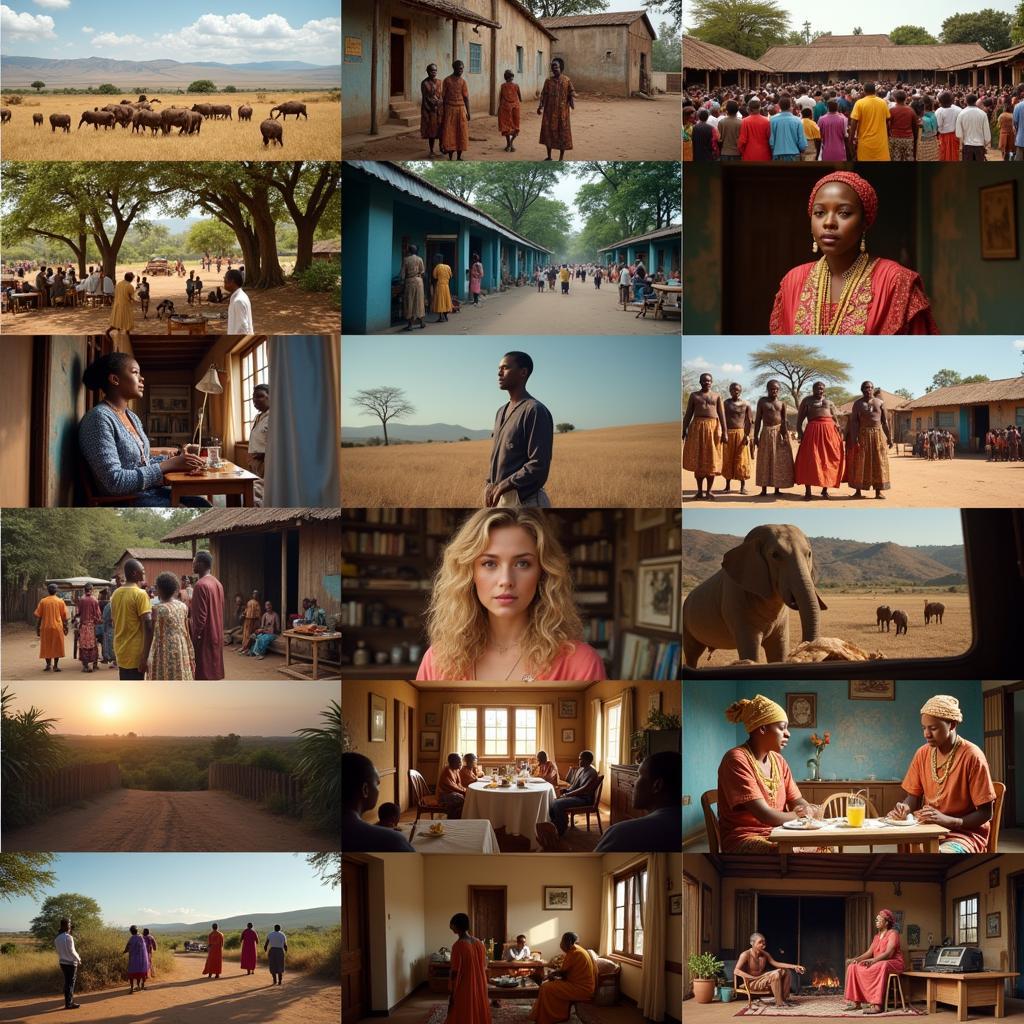African Introductions: Navigating First Encounters with Cultural Respect
The essence of Africa lies not only in its breathtaking landscapes but also in its diverse and vibrant cultures. Understanding “African Introductions” is key to appreciating the continent’s societal fabric, where respect and tradition intertwine. This journey into African greetings goes beyond a simple “hello,” unveiling customs that reflect deep-rooted values passed down through generations.
The Significance of Greetings in Africa
In many African cultures, greetings are more than just pleasantries; they are a fundamental aspect of social interaction, showing respect, building relationships, and reinforcing community bonds. They signify acknowledging someone’s presence, showing genuine interest in their well-being, and acknowledging their place within the community. Ignoring these customs can be misconstrued as rudeness or disinterest.
A Tapestry of Traditions: Exploring Regional Variations
Africa’s beauty lies in its diversity, and this extends to its introductions. Each region boasts unique customs, reflecting local languages, beliefs, and social structures.
East Africa: Warmth and Respect in Swahili
In East Africa, the Swahili phrase “Habari yako” (How are you?) is often the first step in an introduction. Responses like “Nzuri” (Fine) maintain the respectful tone. Handshakes are common, but using the right hand is crucial, as the left hand is considered unclean in some cultures.
West Africa: Respect for Elders and Ancestral Lineage
West African introductions often involve inquiring about the well-being of one’s family and ancestors. This reflects the importance placed on family ties and lineage. Addressing elders with titles like “Mama” or “Baba” (Mother or Father) regardless of biological relation, demonstrates respect.
Southern Africa: Ubuntu and the Spirit of Togetherness
In Southern Africa, the concept of “Ubuntu” (humanity towards others) underpins social interactions. Greetings often express concern for the well-being of the community. For example, in Zulu, “Sawubona” (literally “I see you”) acknowledges someone’s presence and humanity, emphasizing interconnectedness.
Beyond Words: Nonverbal Communication
In African cultures, body language speaks volumes. A slight bow, a hand on the heart, or avoiding direct eye contact can convey respect, particularly towards elders. Understanding these unspoken cues is vital for navigating social situations with sensitivity.
Modern Influences: Balancing Tradition and Change
While traditional greetings remain strong, modern influences are subtly changing the landscape of African introductions. The younger generation might incorporate English phrases or adopt more informal styles, particularly in urban areas. However, the core values of respect, community, and honoring elders continue to shape interactions.
FAQs: Demystifying African Introductions
1. How do I greet someone in Africa for the first time?
A simple “hello” with a smile is a good start. Observing and mirroring the other person’s greeting style is always appreciated.
2. Why is it important to greet elders with respect?
Elders hold a revered position in African societies, symbolizing wisdom and experience. Showing them respect acknowledges their contributions to the community.
3. Can I use humor during introductions?
While humor is appreciated, it’s best to err on the side of caution until you understand the cultural context. What’s funny in one culture might be inappropriate in another.
Navigating Introductions with Respect and Curiosity
“African introductions” offer a window into the soul of the continent. [African dating] can be a beautiful experience when you approach it with an open mind and heart. From the melodic greetings of East Africa to the Ubuntu spirit of the south, these encounters remind us that even in our diverse world, respect and human connection form the foundation of meaningful interactions.
Remember, every encounter is an opportunity to learn, connect, and appreciate the richness of African cultures. So, embrace the diversity, approach each introduction with respect, and let the warmth of African hospitality guide your journey.
Need help navigating the world of African dating or understanding cultural nuances? Contact us at +255768904061, email us at kaka.mag@gmail.com, or visit us at Mbarali DC Mawindi, Kangaga, Tanzania. Our 24/7 customer support team is here to assist you. You can also learn more about [African couples] or explore our [African dating service].


